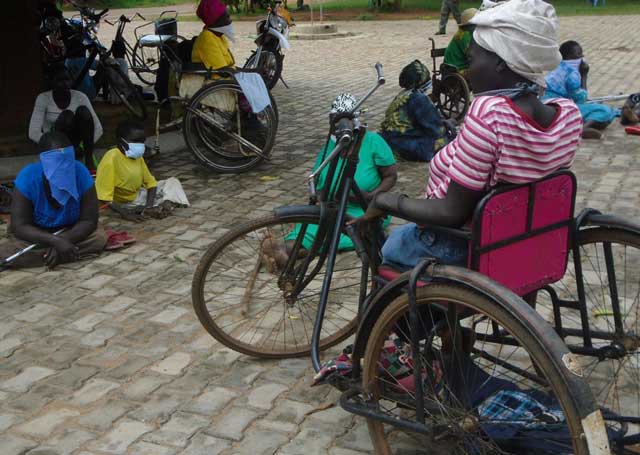As Uganda heads toward the 2026 general elections, persons with disabilities are demanding clear and practical commitments from presidential candidates.
Under their umbrella organization National Union of Disabled Persons of Uganda (NUDIPU), persons with disabilities urged candidates to move beyond vague promises on special needs education and provide clear, detailed, and actionable commitments that address their specific needs.
Easter Kyozira, Executive Director of NUDIPU, said that as the country heads to the polls, persons with disabilities are yet to see candidates address their concerns.
Kyozira added that there are eight key areas where those seeking the highest office in the land should focus to transform the lives of persons with disabilities.
Among those are social protection, inclusive education, inclusive health and assistive technology devices, inclusive employment, access to justice, and political participation.
Her call comes as NUDIPU and its partners launched the “Disability Manifesto,” which outlines their expectations from all presidential candidates. The manifesto was launched last week in Kampala.
The document presents key demands aimed at promoting the inclusion of persons with disabilities in national development plans.
Beyond inclusive education, which they describe as rhetorical in most candidates’ manifestos, they demanded clear commitments in other areas.
Under social protection, they are calling on candidates to state their position on establishing a Child Disability Assistance Program to help parents and caretakers of children with disabilities meet the additional costs of accessing health, education, and other essential services.
In the health sector, the document calls for universal access to affordable prosthetics, mobility aids, and rehabilitation services. It also urges candidates to clearly state their position, pledges, and action plans on these and other disability-related issues.
Martin Ssenoga, NUDIPU programmes manager, said they expect candidates to commit to fast-tracking the establishment of employment quotas for persons with disabilities, in line with Section 9 of the Persons with Disabilities Act.
Representing about six million Ugandans, or roughly 13 percent of the population, persons with disabilities are using their numbers and voter influence to demand inclusion across key sectors.
Alex Ndeezi, Chairperson of the Uganda Parliamentary Forum for Persons with Disabilities, said candidates must take disability issues seriously.
“With six million people, we have some good votes. Candidates must tell us how they intend to address our issues or risk our ballots,” he said through his interpreter.
A review by URN showed that most presidential manifestos fall short on disability issues. Many, as pointed out by NUDIPU, only reference persons with disabilities under special needs education.
The NRM manifesto includes a section that promises to rehabilitate all special needs schools and to extend education to all, allocate 10 percent of Parish Development Model funds to PWDs, and ensure participation in governance through special interest group representation right from the villages.
The NUP manifesto mentions persons with disabilities briefly under the education sector, with the term “inclusion” appearing in its eleven-point program, but lacking specific commitments.
The Alliance for National Transformation (ANT) also addresses issues affecting persons with disabilities, mainly in the education sector.
It pledges to provide teaching aids, train teachers to better support learners with disabilities, and improve accessibility in schools. The manifesto further includes commitments on social security for vulnerable groups.
The FDC manifesto provides the most detailed proposals, including incentives for companies that employ persons with disabilities, an innovation fund for PWDs, enforcement of building accessibility standards, and the establishment of handicraft centers for wheelchair users.
***URN***

